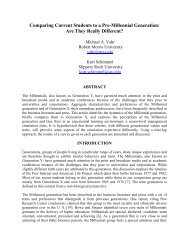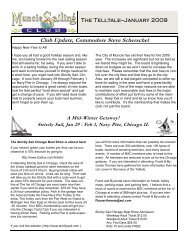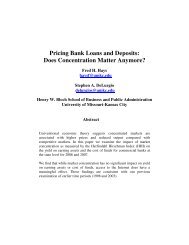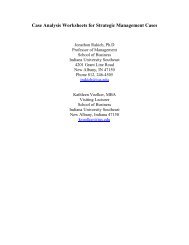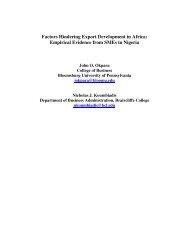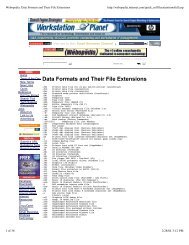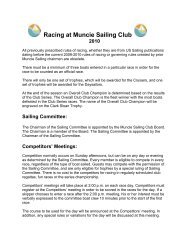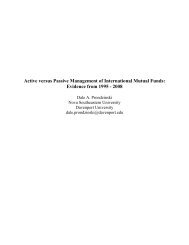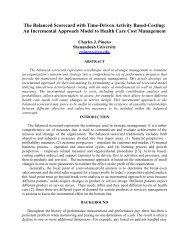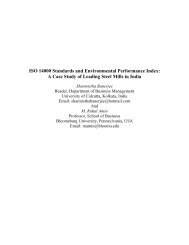Internet-based Applications from the Banking Industry
Internet-based Applications from the Banking Industry
Internet-based Applications from the Banking Industry
Create successful ePaper yourself
Turn your PDF publications into a flip-book with our unique Google optimized e-Paper software.
impact of <strong>the</strong> crisis on individual students creates a natural interest. Relative to <strong>the</strong> market<br />
concentration question, students may wonder “How do <strong>the</strong> horizontal merger guidelines apply<br />
when large institutions buy o<strong>the</strong>r large institutions” That is a great question! Bank of America<br />
acquired Countrywide as well as Merrill Lynch. Wells Fargo acquired Wachovia. JP Morgan<br />
purchased Bear Stearns. In addition, investment banks such as Goldman Sachs have changed<br />
organizational form and have become bank holding companies thus affecting market<br />
concentration in those markets where <strong>the</strong>y operate.<br />
In <strong>the</strong> end, <strong>the</strong> simple answer is desperate times call for desperate measures. The newly<br />
revised DOJ/FTC Horizontal Merger Guidelines contain a specific provision for failing firms.<br />
This allows distressed firms to overcome antitrust concerns.<br />
…a merger is not likely to enhance market power if imminent failure, as defined below, of<br />
one of <strong>the</strong> merging firms would cause <strong>the</strong> assets of that firm to exit <strong>the</strong> relevant market.<br />
This is an extreme instance of <strong>the</strong> more general circumstance in which <strong>the</strong> competitive<br />
significance of one of <strong>the</strong> merging firms is declining: <strong>the</strong> projected market share and<br />
significance of <strong>the</strong> exiting firm is zero. If <strong>the</strong> relevant assets would o<strong>the</strong>rwise exit <strong>the</strong><br />
market, customers are not worse off after <strong>the</strong> merger than <strong>the</strong>y would have been had <strong>the</strong><br />
merger been enjoined. (Revised Horizontal Merger Guidelines, 2010)<br />
This does not mean that Congress will not alter antitrust and merger standards as <strong>the</strong>y<br />
craft reforms following <strong>the</strong> economic and financial crises. Public criticism over fur<strong>the</strong>r<br />
concentration of banking power could pressure Congress toward actions to reduce market<br />
concentration. This could create an interesting classroom debate on <strong>the</strong> merits of enhancing large<br />
scale financial institutions in times of crisis versus allowing market power to continue.<br />
Market concentration versus bank pricing<br />
Economic literature has long suggested that monopoly markets tend to be associated<br />
with higher prices and lower output, ceteris paribus, compared to competitive markets. This<br />
leads economists to discuss <strong>the</strong> deadweight loss of monopoly.<br />
Using <strong>the</strong> MSAs <strong>from</strong> earlier discussions, HHI can be compared to quantitative<br />
performance measures like yield on earning assets (YoEA) and cost of funds (CoF) in Exhibit<br />
10.



